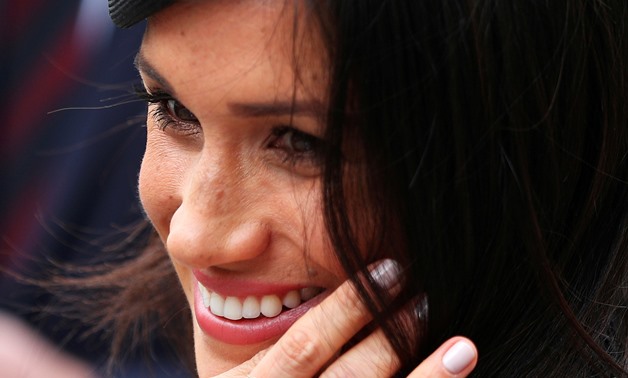
Britain's Prince Harry's fiancee Meghan Markle leaves an ANZAC day service at Westminster Abbey in London, April 25, 2018. REUTERS/Hannah McKay
LONDON - 2 May 2018: U.S. actress Meghan Markle will join Britain’s royal family when she marries Prince Harry this month but before she can become a British citizen, it will help her to know how big the Lake District is and the age of “Big Ben”.
Markle plans to take the nationality of her new husband after their wedding on May 19 but, like tens of thousands of others wanting to become British every year, she will first have to demonstrate knowledge of some historical facts and obscure trivia that many Britons are oblivious to.
All would-be citizens must pass the “Life in the UK” test by successfully answering 18 out of 24 questions selected from some 3,000 facts, such as knowing the height of the London Eye Ferris wheel and how many lawmakers sit in the Scottish Parliament.
Even many Britons find the questions baffling. In a random survey carried out by Reuters, only 23 out of 41 Britons quizzed could correctly answer questions put to them, and many of those admitted they were guessing.
“I did history at school but some of them are just absolutely stupid,” said chef Tom Poston, 46, after failing a sample test shown to him by Reuters.
“I would have been kicked out, amazing,” said Poston, who lives in London. “I think she’s (Markle) going to have to do a lot of studying because I’m shocked.”
HURDLES TO CITIZENSHIP
Britain has made the process of becoming a citizen more difficult in recent years as it struggles to cut annual net immigration to less than 100,000. Underlining the sensitivity of that issue, Amber Rudd quit as Home Secretary (interior minister) on Sunday over an immigration scandal.
Becoming a citizen requires a person to have lived in Britain for three years, to have good knowledge of English, to be of sound mind - and to pass the 50 pound ($69) test.
However, the additional requirement of earning a combined income of at least 18,600 pounds should not prove to be too burdensome for a prince of the realm and his new wife.
For many applicants, though, the citizenship test is a major stumbling block. The most recent official figures showed that 133,490 tests were taken in 2016 with 47,312 failures.
“It’s very divorced from what the normal experience is for people,” Thom Brooks, an academic and vocal critic of the test, told Reuters. “It’s the British citizenship test that very few British citizens can pass.”
Brooks, originally from the United States, sat the quiz himself in 2009 before becoming a UK citizen two years later.
“The general view is that it’s a money-making ruse by the Home Office,” said Brooks, adding that one applicant had failed it more than 60 times. “I haven’t really found anyone who found that the test was particularly beneficial for helping them settle in the country.”
Last month, a report by Britain’s House of Lords committee on citizenship agreed with Brooks and called for a review.
“The current test seems to be, and to be regarded as, a barrier to acquiring citizenship rather than a means of creating better citizens,” it said.
Among the possible questions are who opened Britain’s first Indian restaurant (Sake Dean Mahomed), the size of the Lake District natural park in northern England (885 sq miles or 2,292 km), and the age of the famous “Big Ben” bell in parliament’s clock tower (it came into operation in 1859).
Some of those quizzed by Reuters thought Markle might fare better than they had.
“I did terribly,” said retired engineer David Armstrong, 58. “She’s a bright girl, she might get half.”


Comments
Leave a Comment